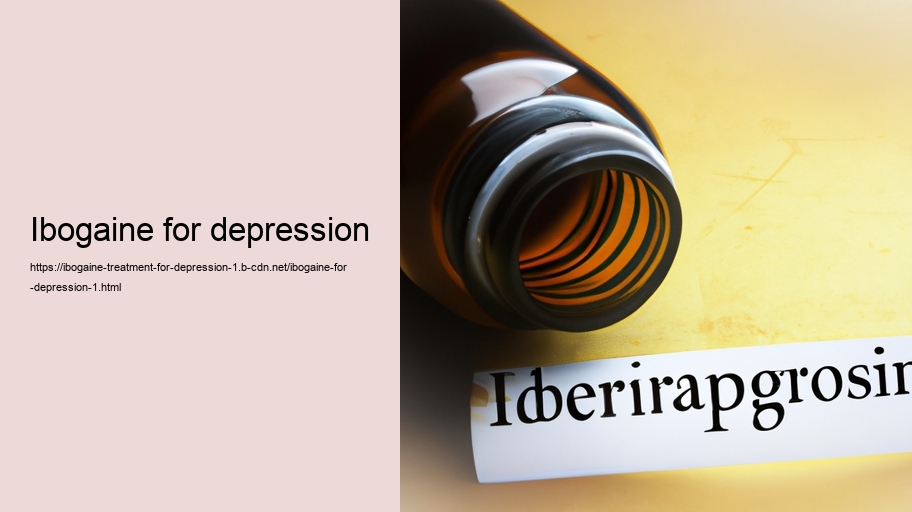Ibogaine for Depression: A Glimmer of Hope Beyond Conventional Treatment
In the ever-evolving quest to alleviate the burden of depression, a condition that affects millions worldwide with its oppressive weight, traditional treatments like psychotherapy and pharmaceuticals have long been at the forefront. However, not all who wander in the shadowy depths of this mental health affliction find solace through these conventional means. It is within this context that ibogaine—a naturally occurring psychoactive substance derived from the root bark of the West African shrub Tabernanthe iboga—has emerged as an intriguing alternative.
The journey toward understanding ibogaine's potential role in treating depression is one fraught with complexity, controversy, and cautious optimism. To appreciate its place on this landscape, it is necessary to delve into what makes ibogaine distinct and why it might hold promise for those grappling with depressive disorders.
At first glance, ibogaine seems an unlikely candidate for therapeutic use; it is known primarily for its powerful psychotropic effects and historical use in spiritual ceremonies by indigenous cultures in West Africa. Nevertheless, its unique mechanism of action has captured the attention of researchers and individuals seeking new pathways to healing.
Unlike typical antidepressants that target neurotransmitter systems such as serotonin or norepinephrine, ibogaine operates on multiple levels. It interacts with various neuroreceptors and transporters—including those linked to opioids, serotonin, and glutamate—which may explain its multifaceted effects on mood regulation and cognition. Additionally, it has been suggested that ibogaine promotes neuroplasticity—the brain's ability to reorganize itself by forming new neural connections—which could potentially reverse stress-induced damage associated with depression.
Anecdotal accounts from individuals who have undergone ibogaine treatment report profound psychological insights and emotional catharsis during their experiences. Some describe a sense of being confronted with—and able to let go of—deep-seated traumas or negative thought patterns that contribute to their depressive symptoms. Whether these subjective reports translate into long-term relief remains an area ripe for scientific exploration.
However promising these narratives may sound, they do not come without significant caveats. Ibogaine's legality varies across countries due to concerns about its safety profile; it can induce intense hallucinations, cardiovascular complications, and even fatalities when administered improperly or without medical supervision. For this reason, rigorous clinical research into dosing protocols and patient selection criteria is essential before declaring it a viable option for treating depression.
To date, empirical evidence supporting ibogaine's efficacy against depression is limited but growing. Small-scale studies have shown some positive outcomes related to mood improvement following treatment sessions using low doses under medical guidance—offering a glimmer of hope that further investigation may validate these findings.
Ethical considerations must also be front-and-center when discussing experimental therapies like ibagoinine.
While desperate times often call for innovative measures when confronting a relentless adversary such as depression,
it’s imperative we balance our eagerness for breakthroughs with meticulous scientific scrutiny
and respect for patient safety above all else.
As we continue our collective journey through uncharted territories in mental health care,
ibogiene stands out as both a beacon illuminating alternative possibilities
and a reminder that hope often resides just beyond the edge
of what we currently understand.
For those whose lives are dimmed by the persistent fog of depression,
exploring substances like Ibagoinine represents more than scientific curiosity—it signifies an earnest search
for healing in places yet untapped by mainstream medicine.
